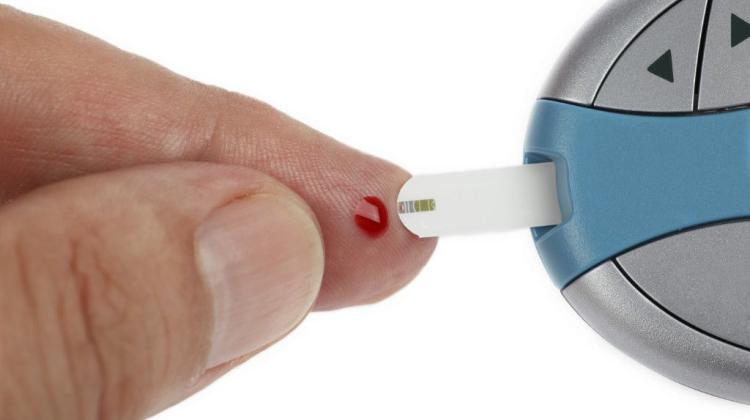Good combination! Combining drugs is a chance in the treatment of pancreatic cancer
 Photo: Fotolia
Photo: Fotolia
Researchers from Łódź and Boston have developed a new chemotherapy scheme that is likely to be useful in the treatment of pancreatic cancer. They showed that a combination of two never-before combined drugs could be beneficial.
"Pancreatic cancer is one of the cancer with the worst prognosis. Over 75% patients die within one year from diagnosis despite treatment" - told PAP Dr. Wojciech Fendler from the Department of Biostatistics and Translational Medicine, Medical University of Lodz. Complete removal of the tumour gives the greatest chance for a longer survival, but such treatment is possible in only one in five cases. Additional treatment such as radiotherapy or chemotherapy does not significantly improve the patient\'s chances of survival at this point. That is why there is a strong need to develop a new drug therapy "tailor-made" for the fight against pancreatic cancer.
Researchers at the Dana-Farber Cancer Institute in Boston and the Medical University of Lodz have figured out how to starve pancreatic cancer cells by combining the effects of two drugs that no one has ever thought of combining. Studies have been done on cell lines and mice. The tests showed tumour cell growth inhibition. The therapy has not yet been tested on humans. The study has been published in the journal Nature Communications.
Researchers had high hopes for CB839, which inhibited the growth of pancreatic cancer cells in experimental studies. However, this drug could not be used on patients because it works ... only for a few days. During that time, pancreatic cancer cells actually "starve" - they are not able to obtain one of the necessary amino acids - glutamate. After a few days, however, they find a new way to get the amino acid they need. And that means that they become resistant to the drug and the cancer starts to develop again.
Researchers decided to investigate what happens in the cell when it changes its metabolism in response to the drug and becomes resistant to treatment. They used this knowledge to block this mechanism of acquired chemoresistance. This would allow you to further block the acquisition of the essential amino acid in the tumour and completely starve the dangerous cells. Each team - from Boston and Łódź - has found a different drug that can block this resistance. These drugs are well known and used in practice or tested in clinical trials, so if the effectiveness of the therapy is confirmed, the path to their use will not be as long and expensive as it would be in the case of a new substance.
"Our colleagues from Boston studied how the metabolic products in the cell that develops resistance changed. They figured out which cell pathways changed their activity and, based on their own extensive knowledge of metabolism and cell biochemistry, sought to block these pathways" - said Dr Fendler. "It was a difficult task!" - he added.
Researchers from the Medical University of Lodz, in turn, assumed that to acquire resistance the cell needed specific proteins. Maybe it would be enough to block the production of these proteins through existing, tested substances that have already demonstrated similar effects? Polish researchers chose a different approach - instead of trying to figure it out, they searched the public bioinformatics databases created by the Broad Institute in Boston. These databases contain data on how the contents of individual proteins change in cells as a result of the action of particular pharmaceuticals. This allowed to find the compounds that would most effectively block the development of resistance in a tumour cell. Interestingly, this approach to alternative drug use did not require knowledge of all potential mechanisms of its action.
Then Dr. Joseph Mancias\' team from Boston experimentally confirmed the efficacy of the drugs selected based on bioinformatics, demonstrating the equivalence of both approaches in the search for therapeutic combinations.
Chemotherapy could be based on the combination of CB839 and one of the drugs proposed by the teams from Poland and the US.
Dr. Fendler is currently head of a research team looking for tools to increase radiotherapy safety and, together with Boston researchers, he searches for further combinations of known drugs that could prove effective against other cancers.
PAP - Science and Scholarship in Poland, Ludwika Tomala
lt/ agt/ kap/
tr. RL
Przed dodaniem komentarza prosimy o zapoznanie z Regulaminem forum serwisu Nauka w Polsce.
















